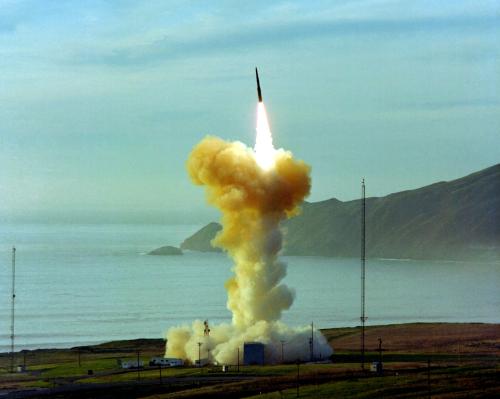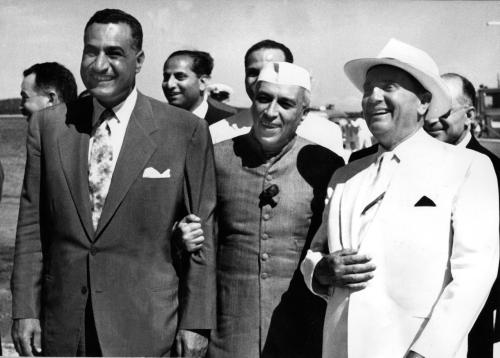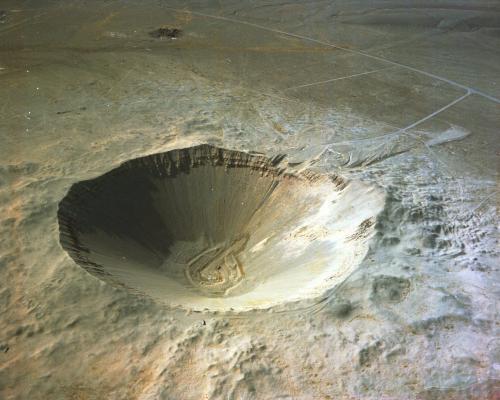For years, the U.S. has retained the option of a military strike against Iran’s nuclear facilities. Not preferred by either George W. Bush or Barack Obama, it has nonetheless survived the U.S. presidential transition as a last resort should diplomacy and economic sanctions fail to persuade Tehran to put its nuclear programme back under proper restrictions and inspections. As an option, however, it should not become a self-fulfilling prophecy. We need instead to develop a long-term strategy for dealing with a nuclear Iran and not box ourselves into war.
The threat of a military strike is seen as increasing American leverage. In this view, not only does it supposedly intimidate Iran, but it also helps Washington and like-minded western nations persuade other countries to tighten and enforce official sanctions. The U.S. can argue that sanctions are preferred to military force, but that they will only work if all co-operate.
The strike option, however, lacks credibility. America is engaged in two massive and unpopular military campaigns in the region. Given Iran’s ability to retaliate against the US in Iraq and Afghanistan, it is simply not credible that we would use force in the foreseeable future. Tehran, Moscow and Beijing know this.
There is also a technical reality: even a massive strike would not slow Iran’s progress towards a bomb for long. We cannot be sure we know where all existing Iranian facilities to enrich uranium are located – as the revelation of yet another previously unknown site near Qom last year reminded us. Even if we did strike most or all existing facilities, Iran can rebuild fairly fast and would surely expel inspectors and burrow further underground when building its next facilities. It would be even harder to find, and strike, those assets.
If there were any real chance of major political reform in Iran within a couple of years, buying that much time might be worth the cost. But the unrest in Iran since last year’s stolen election is not likely to bring about regime change, given the regime’s control of the military. Nor is a strike by an outside power likely to help the cause of Iranian reformists.
Generally, those who argue against a military strike stop 10 yards short of the finish line. After concluding that a strike would not make sense, they still tend to tolerate leaving it as a last resort. There are dangers to such an approach. Mr Obama may some day come under pressure to employ it when all else has failed – and we think this would be a mistake, not only for the specific matter of Iran policy but more broadly for his effort to recast the U.S. as a country playing by international legal norms.
In addition, keeping the option of force requires U.S. diplomats and military officials to take preparatory steps that may distract from our current efforts in Iraq and Afghanistan, and complicate a number of regional bilateral alliances. Some states in the Middle East, such as Saudi Arabia and the United Arab Emirates, are generally worried about Iran. But few are anxious to support moves towards war. We will be better positioned for a sustained tightening of regional alliances if we remain resolute yet fundamentally defensive in our orientation and strategy.
There is a better way: sanctions, deterrence and containment. To be sure, another nuclear-armed state in the Middle East, especially one touting the extremist views of the current Iranian regime, would be bad for regional security. But Iran would be suicidal to attack a U.S. ally in the region – especially one such as Israel, which has a formidable nuclear arsenal by all accounts. Iran has already proved its willingness to wage proxy and terror wars against the U.S. and Israel. It is doubtful that a small nuclear arsenal would offer it many more options than it has already.
We should structure a sanctions regime so that it could evolve into containment of a nuclear-armed Iran, focusing on high-technology goods and weapons transfers. We should also pledge to provide a nuclear umbrella over Israel and other threatened states. In other words, we would use the techniques of containing the Soviet Union and communist China from the cold war to handle this newer, serious yet smaller, threat. It is not a great option. But it is much better than war.
The Brookings Institution is committed to quality, independence, and impact.
We are supported by a diverse array of funders. In line with our values and policies, each Brookings publication represents the sole views of its author(s).



Commentary
Op-edDo Not Even Think About Bombing Iran
February 28, 2010